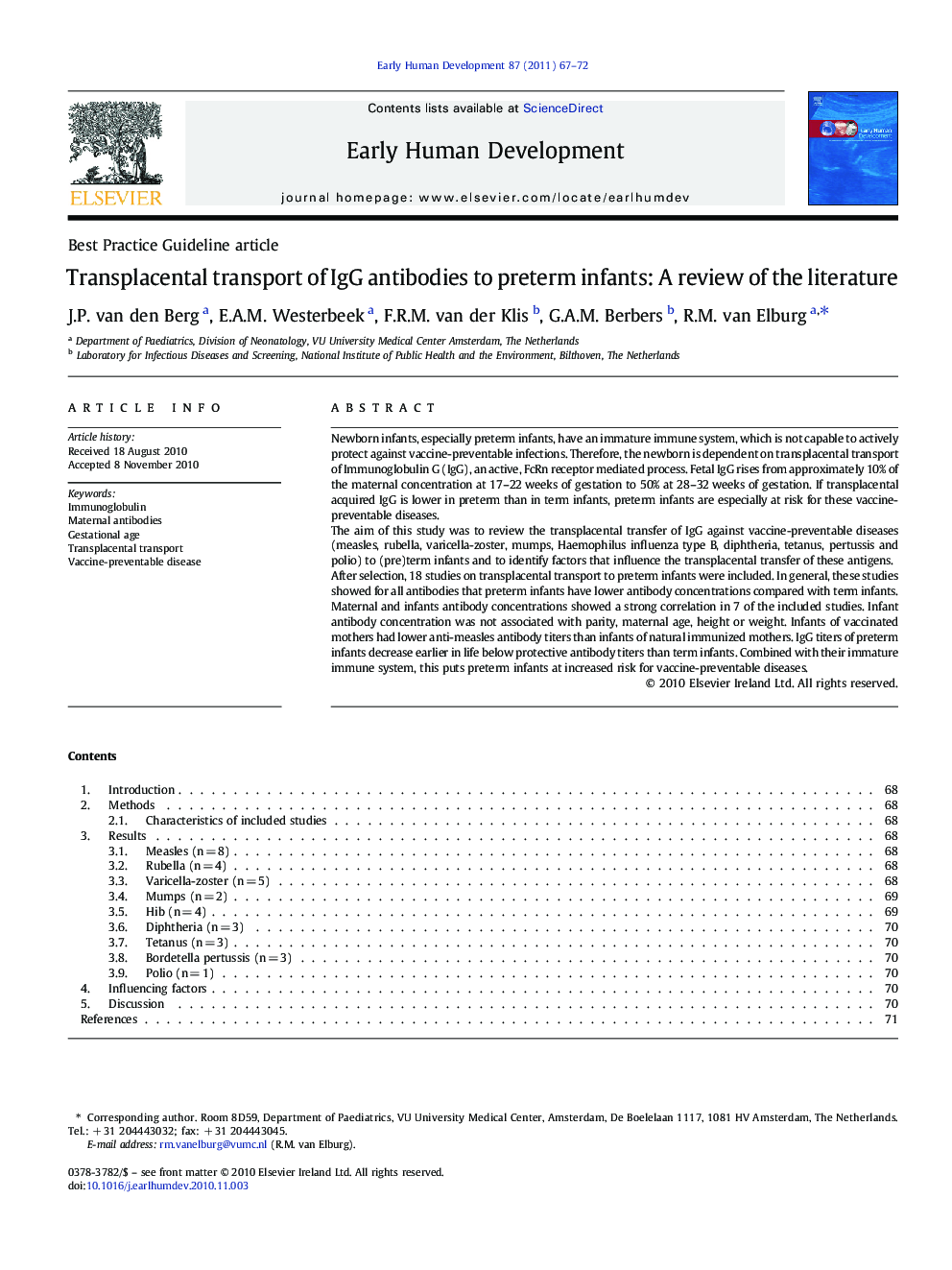| Article ID | Journal | Published Year | Pages | File Type |
|---|---|---|---|---|
| 3917225 | Early Human Development | 2011 | 6 Pages |
Newborn infants, especially preterm infants, have an immature immune system, which is not capable to actively protect against vaccine-preventable infections. Therefore, the newborn is dependent on transplacental transport of Immunoglobulin G (IgG), an active, FcRn receptor mediated process. Fetal IgG rises from approximately 10% of the maternal concentration at 17–22 weeks of gestation to 50% at 28–32 weeks of gestation. If transplacental acquired IgG is lower in preterm than in term infants, preterm infants are especially at risk for these vaccine-preventable diseases.The aim of this study was to review the transplacental transfer of IgG against vaccine-preventable diseases (measles, rubella, varicella-zoster, mumps, Haemophilus influenza type B, diphtheria, tetanus, pertussis and polio) to (pre)term infants and to identify factors that influence the transplacental transfer of these antigens.After selection, 18 studies on transplacental transport to preterm infants were included. In general, these studies showed for all antibodies that preterm infants have lower antibody concentrations compared with term infants. Maternal and infants antibody concentrations showed a strong correlation in 7 of the included studies. Infant antibody concentration was not associated with parity, maternal age, height or weight. Infants of vaccinated mothers had lower anti-measles antibody titers than infants of natural immunized mothers. IgG titers of preterm infants decrease earlier in life below protective antibody titers than term infants. Combined with their immature immune system, this puts preterm infants at increased risk for vaccine-preventable diseases.
